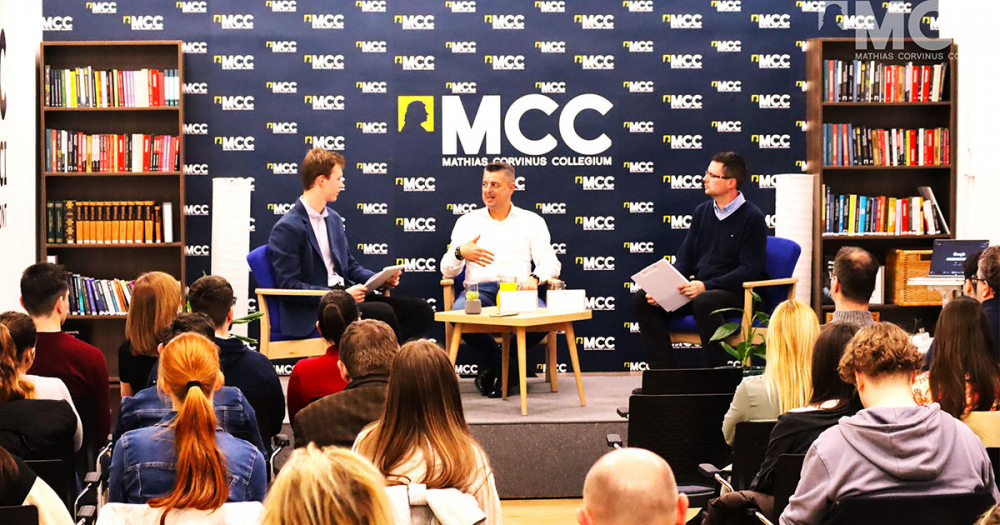On Wednesday, 21 February, CPI's Director, Dr Calum T.M. Nicholson, delivered a lecture on climate change for faculty and students at Miskolc University.
Dr Nicholson discussed the challenges of identifying climate change as a cause of any particularly societal outcome, and of identifying any particular societal outcome as an effect of climate change. In doing, he drew attention to the often neglected work of Disaster Risk Reduction scholarship, which has long shown that 'disasters' are rarely natural, but rather products of social, political, and economic factors. This view is typified in the provocative phrase 'earthquakes do not kill people; what kills people are collapsing buildings'.
Often forgotten, when we talk of 'climate adaptation', is that 'adaptation' is simply a new technocratic buzzword for something much older: culture. Cultures are simply the short-hand term we give the systems of traditions, technologies, and habits that communities create for problem-solving in the context of their specific context, which of course vary depending on region, climate, and general circumstance. In this sense, a society that is vulnerable to natural hazards, from earthquakes to climate change, are simply maladapted, or not being served by their culture.
In the context of this argument, it is worth noting that, when we talk of vulnerability in the face of climate change, the discussion is often focused on so-called 'global south' societies, which in most cases experienced colonisation by Western European powers in recent centuries. In many cases, the colonial experience, and the subsequent arrival of industrialisation and political economies fashioned on Euro-American patterns, led to the growth of new cultures that were not organically adaptive to their context, but imposed regardless of their circumstantial suitability.
This provokes the question: is the problem of climate change in 'global south' countries first and foremost an issue of climate, or of culture?
This and other questions and arguments were the subject of Dr Nicholson's talk.


